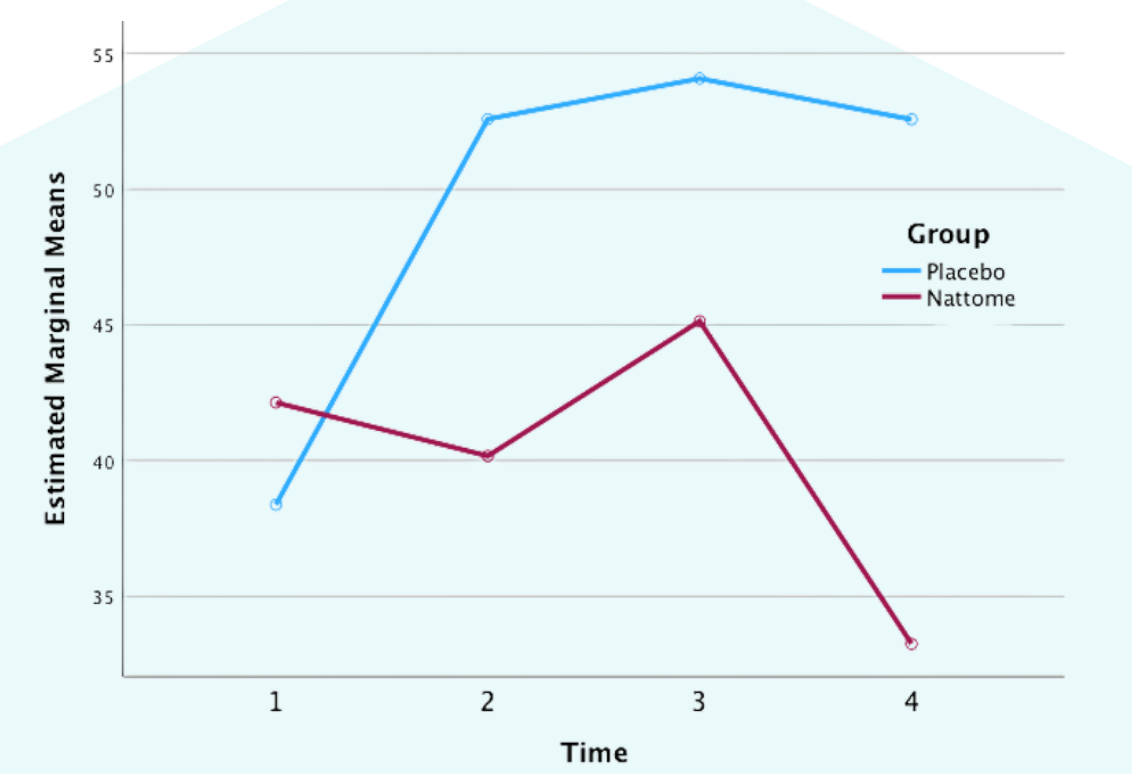Advancing Health Through Clinically Proven Safety
We are dedicated to developing fully natural, and safe products, validated by rigorous scientific research

Clinical study 1: GERD
Effect of Fermented Soybean (FSB) Supplementation on Gastroesophageal Reflux Disease (GERD)
Nattome products are clinically proven to relieve heartburn and acid reflux, supported by a research collaboration with UCSI University to ensure scientific credibility and proven effectiveness.
Learn MoreKEY INSIGHTS
GERD SYMPTOMS
- Heartburn symptoms reduced by 47.6%
- Regurgitation symptoms reduced by 62.9%
- Dyspepsia symptoms reduced by 40.9%
INFLAMMATION LEVELS
- IL-4 reduced by 27.1%
- IL-6 reduced by 43.5%
- IL-8 reduced by 19.8%
QUALITY OF LIFE (QOLRAD)
Overall score improved by 13.3%
- Vitality ↑ 16.7%
- Eat/drink problems ↑ 15.1%
- Emotional distress ↑ 13.3%
- Sleep disturbance ↑ 12.3%
- Physical/social functioning ↑ 10.8%
Study Design
- Heartburn
- Regurgitation
- Inflammation
- Quality of life
STUDY DESIGN - GERD
HEARTBURN (RDQ)
What is this test about?
Reflux Disease Questionnaire (RDQ) – Heartburn symptoms were evaluated.
47.6%
Improvement
Heartburn scores decreased from 0.42 to 0.22 (p<0.01).
Subjects with higher BMI showed better responses to supplementation.
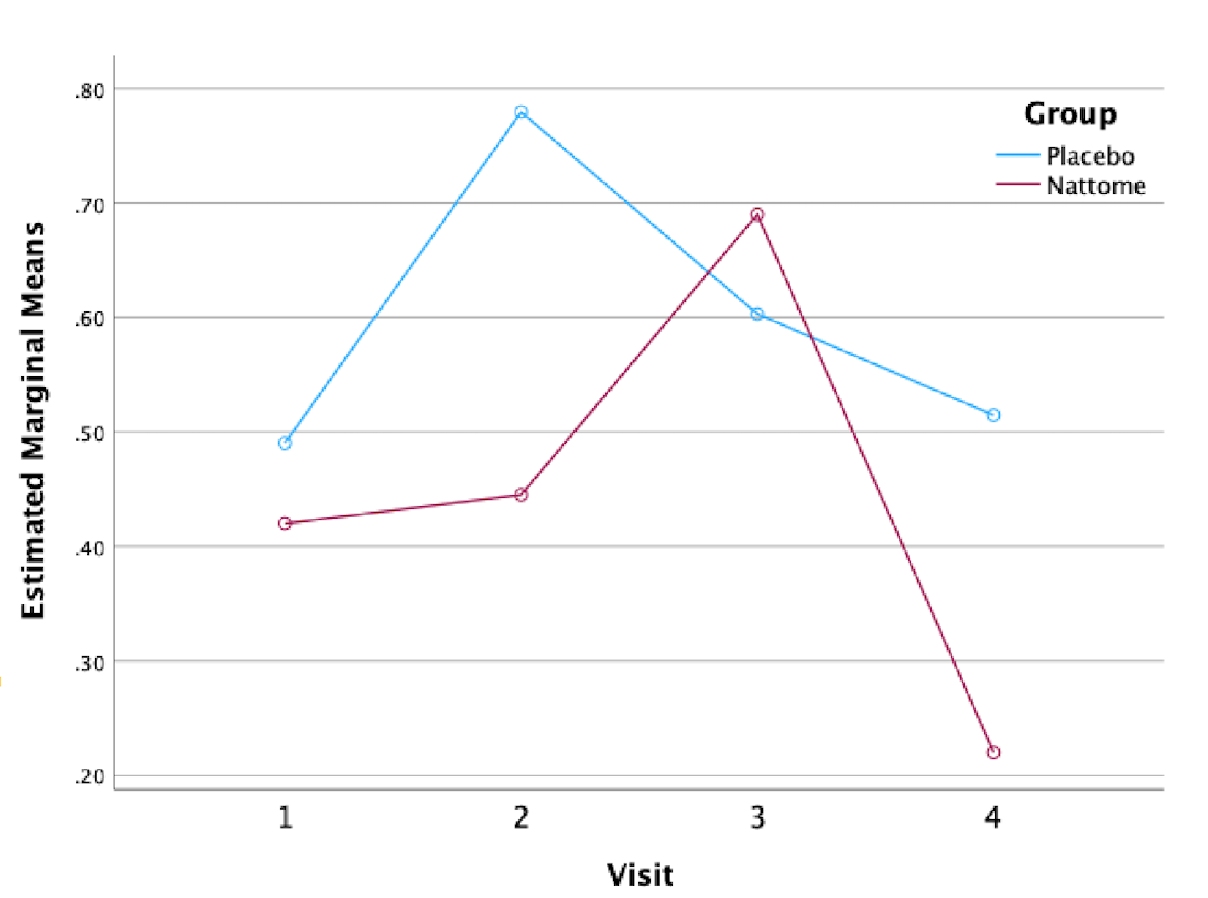
STUDY DESIGN - GERD
REGURGITATION (RDQ)
What is this test about?
RDQ – Regurgitation symptoms were measured to assess reflux severity.
62.9%
Improvement
Regurgitation scores decreased from 0.905 to 0.335 (p<0.001).
Older participants showed stronger improvements.
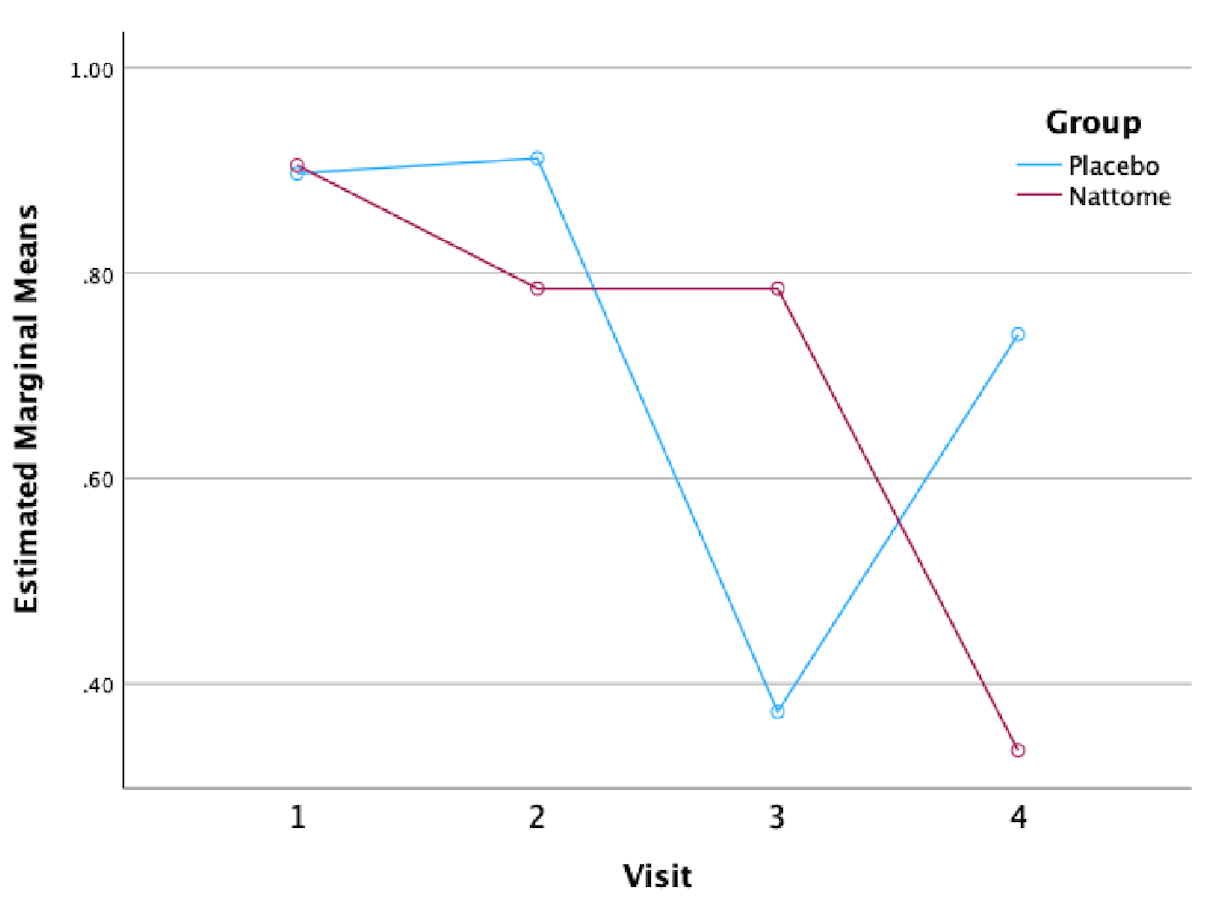
STUDY DESIGN - GERD
INFLAMMATION (IL-4, IL-6, IL-8)
What is this test about?
Levels of pro-inflammatory cytokines (IL-4, IL-6, IL-8) associated with GERD severity were tested.
IL-4 ↓27.1% (129.97 → 94.80 pg/mL, p<0.01)
IL-6 ↓43.5% (4.41 → 2.49 pg/mL, p<0.05)
IL-8 ↓19.8% (231.81 → 185.82 pg/mL, p<0.05)
Fermented soybean peptides demonstrated anti-inflammatory effects.
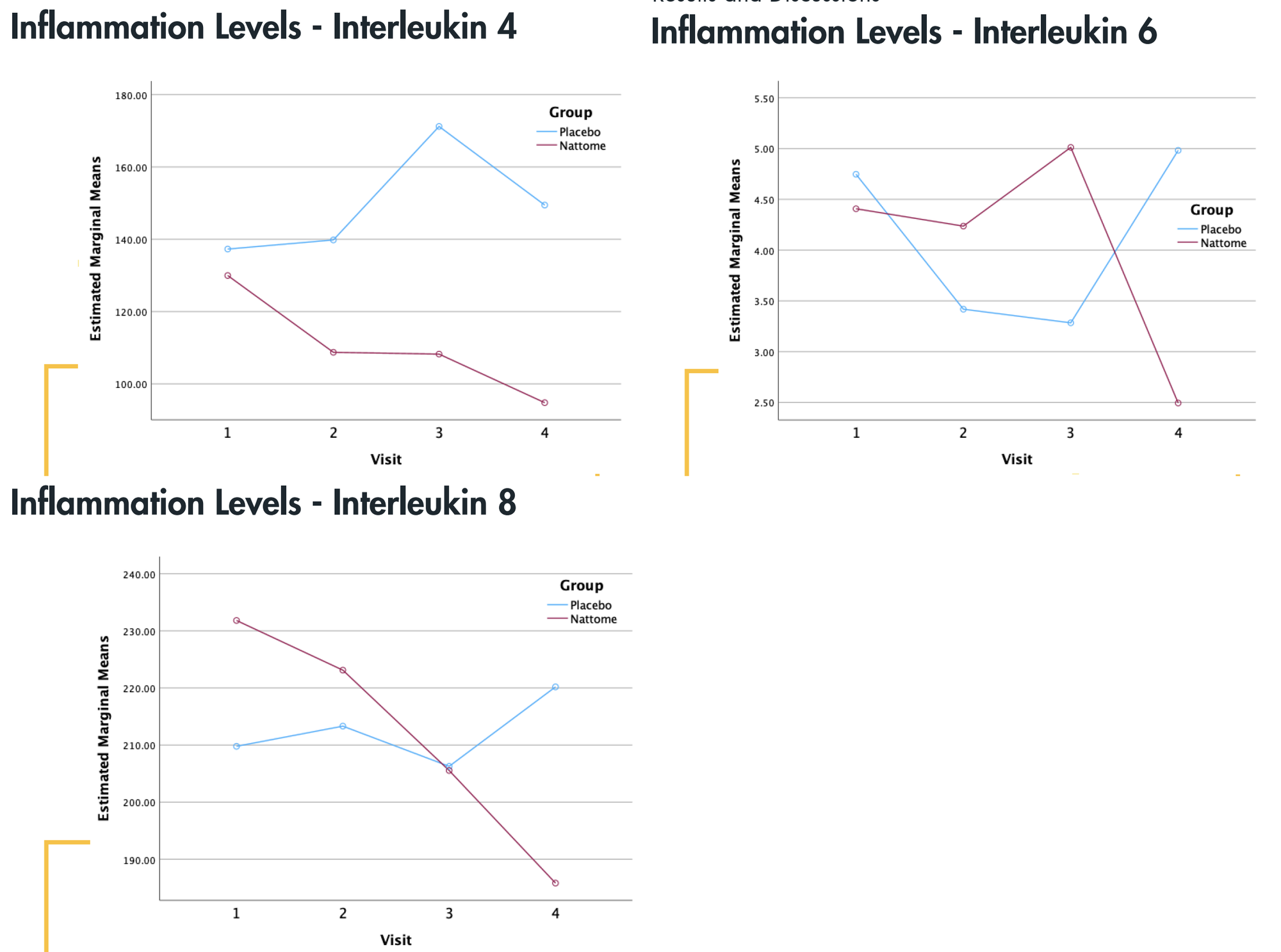
STUDY DESIGN - GERD
QUALITY OF LIFE (QOLRAD)
What is this test about?
Quality of life was assessed using the QOLRAD questionnaire across 5 domains.
13.3%
Improvement
Overall QOLRAD scores improved from 5.27 to 5.97 (p<0.05).
Vitality +16.7%- Eat/Drink +15.1%
- Emotional Distress +13.3%
- Sleep Disturbance +12.3%
- Physical/Social +10.8%
96% of participants reported self-perceived improvement in GERD symptoms.
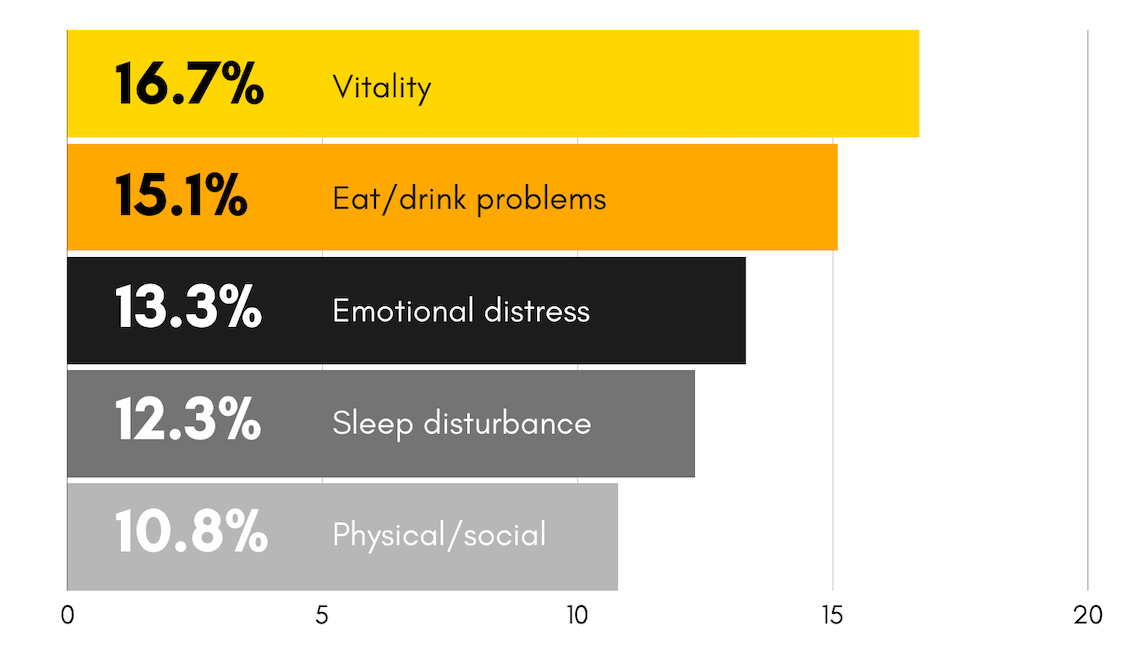
Benefit
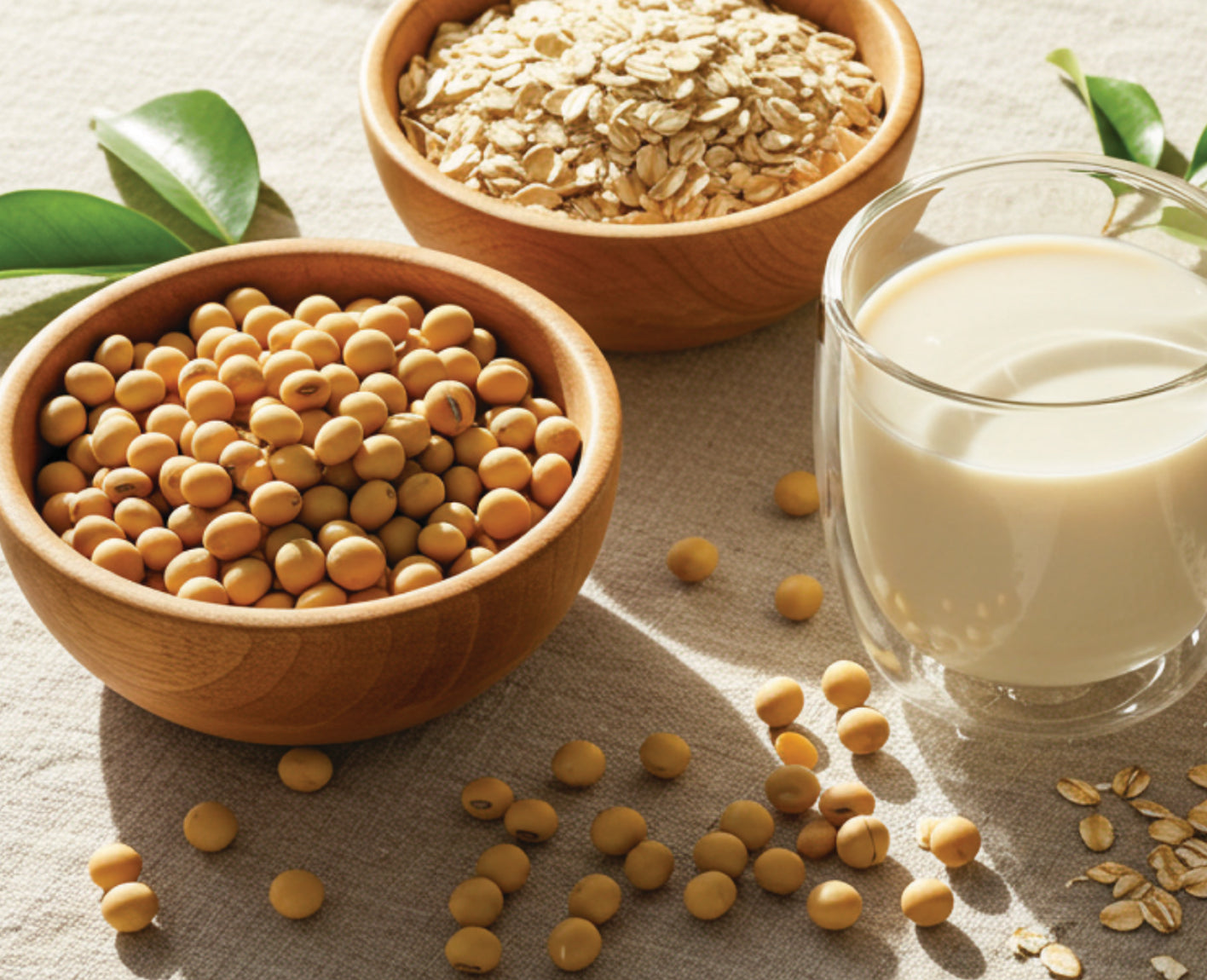
soybeans fermented with Lactobacillus
- Previous study demonstrated that soybeans fermented with Lactobacillusdelbrueckii may be able to suppress heartburn in individuals who experience mild tomoderate symptoms
- A study from Japan has reported that fermented soybean (FSB) such as miso andnatto etc have an essential impact in increasing the function of the immune systemby maintaining the well-balanced gut microbiota. These foods have beneficialcompounds like antioxidants, vitamins, minerals, folic acid, high protein, and probioticbacteria which boost the immune system to fight against infections (4-6).

Clinical study 2: Immunity
Immunomodulatory Potential of Fermented Soy Bean Supplementation: Effects on Immune Fitness
This randomized controlled trial, conducted in 2024, evaluated the efficacy of Nattome supplementation on immunity, antioxidant status, and oxidative stress in 110 participants over a 12-week period.
Learn MoreKEY INSIGHTS
IMMUNITY
- sIgA levels increased by 31.7%
- MPO activities reduced by 39.7%
ANTIOXIDANT
STATUS
The Total Antioxidant Capacity (TAC) of
the subjects was increased by 45.6%
OXIDATIVE
STRESS
The malondialdehyde (MDA) levels of the
subjects was reduced by 21.1%
Study Design
- Immunity
- MPO Activities
- Antioxidant
- Oxidative Stress
STUDY DESIGN - Immunity
Secretory Immunoglobulin A (sIgA)
What is this test about?
The immunity levels of the subjects were evaluated using the following parameters:
Secretory Immunoglobulin A (sIgA) levels Myeloperoxidase (MPO) activities
31.7%
Improvement
sIgA levels increased from 5.77 ng/mL to 7.60 ng/mL,
Secretory IgA (SIgA) serves as the first line of defense in protecting the intestinal epithelium from enteric toxins and pathogenic microorganisms. Our findings align with previous studies, which have demonstrated that fermented soybean products can enhance intestinal sIgA secretion by influencing the intestinal microbiota, thereby contributing to improved immunity (7, 8).
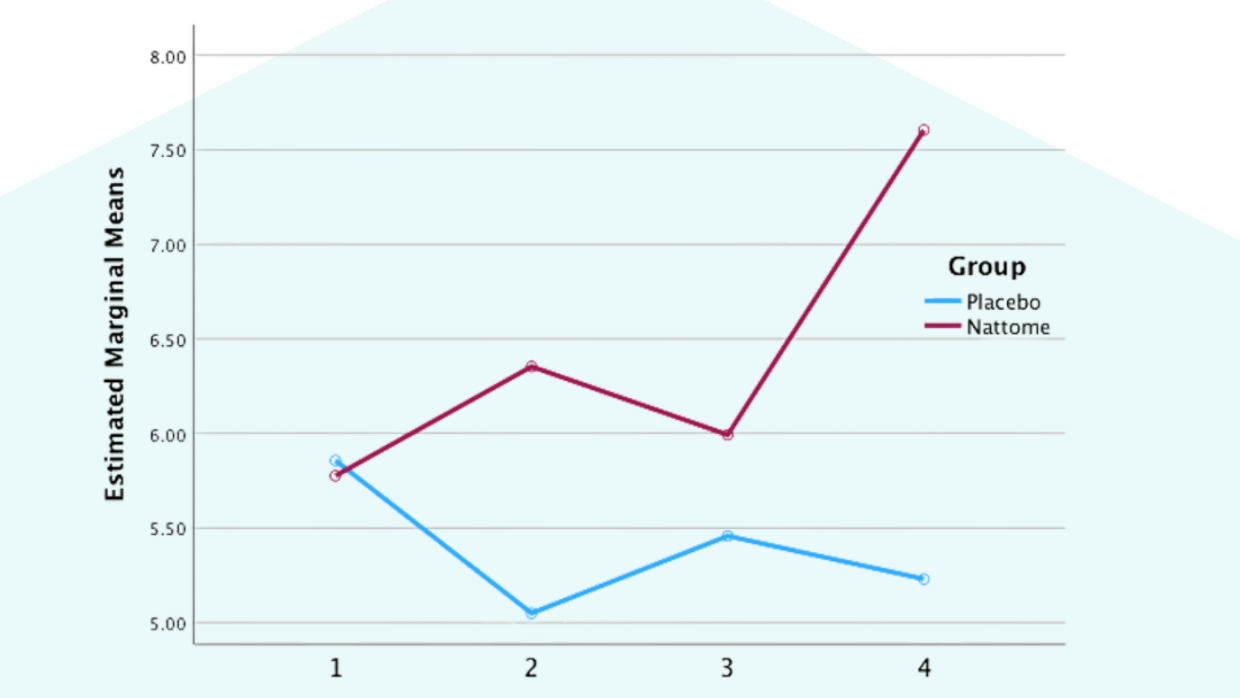
STUDY DESIGN - Immunity
MYELOPEROXIDASE (MPO) ACTIVITIES
What is this test about?
MPO, an enzyme found in neutrophils, is often used as a biomarker for gut inflammation. Its levels can indicate the severity of inflammatory bowel disease (IBD) and are useful for assessing treatment efficacy.
39.7%
Reduction
MPO activities reduced from 860.74 U/L to 518.83 U/L, representing a 39.7% reduction (P<0.05).
The observed reduction in MPO activity in this study may be attributed to the anti-inflammatory and antioxidant properties of soybean products.
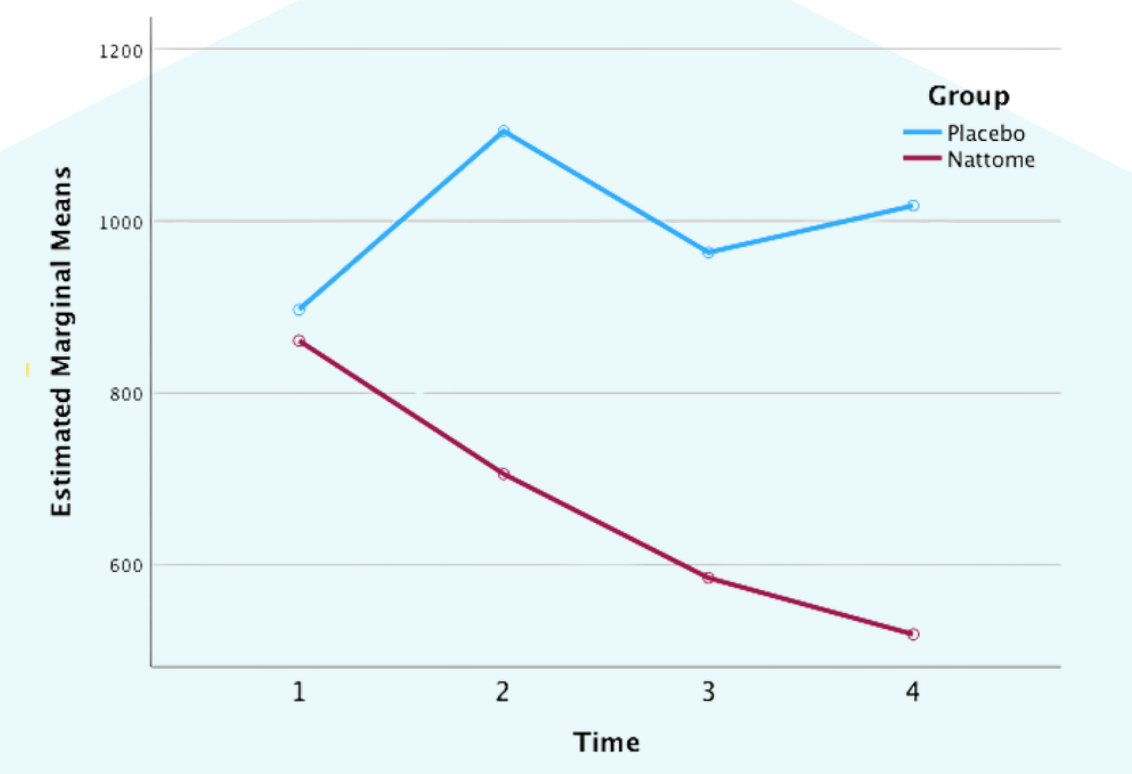
STUDY DESIGN - Antioxidant
TOTAL ANTIOXIDANT CAPACITY (TAC)
What is this test about?
TAC measures the antioxidant status of the body. Antioxidants are crucial in modulating gut microbiota and improving disorders such as liver damage, hypertension, diabetes, obesity, and irritable bowel disease (IBD).
45.6%
Improvement
TAC increased from 14.92 U/mL to 21.73 U/mL, reflecting a 45.6% improvement (P<0.01).
Fermented soybean products are rich in polyphenols, phenolic acids, saponins, sterols, and flavonoids, which are key compounds responsible for antioxidant activity.
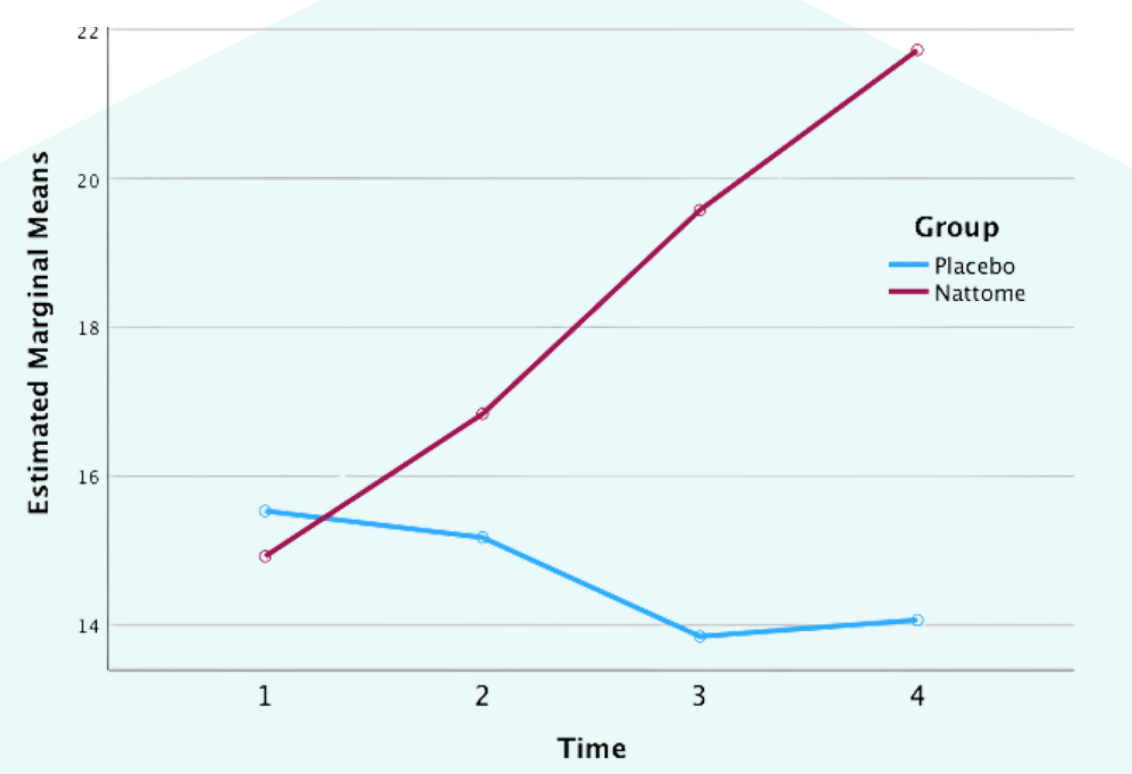
STUDY DESIGN - Oxidative Stress
MALONDIALDEHYDE (MDA)
What is this test about?
MDA is a biomarker of oxidative stress. Elevated MDA levels have been associated with the progression and severity of IBD, IBS, and colorectal cancer.
21.1%
Reduction
MDA levels decreased from 42.14 ng/mL to 33.25 ng/mL, representing a 21.1% reduction.
(Note: The difference between groups was not statistically significant.)
Soybean isoflavones, particularly genistein, promote superoxide dismutase expression, which leads to a decrease in MDA levels.
